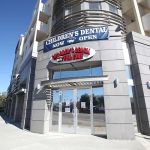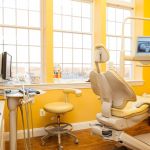Understanding Age-Related Dental Conditions
As I’ve grown older, I’ve noticed that taking care of my teeth and gums has become a bit more challenging. It’s not just about brushing twice a day anymore. As we age, our dental needs evolve, and we must be proactive about managing age-related dental conditions. From gum recession to dry mouth, these conditions can affect our overall oral health, but with the right approach, they are manageable.
Common Age-Related Dental Conditions
Over the years, I’ve learned that there are several dental conditions that become more common as we get older. These conditions don’t just affect how our teeth look, but they can also impact our overall health. Here are some of the most prevalent age-related dental issues:
1. Gum Disease
Gum disease is one of the most common oral health issues for seniors, and I’ve experienced it firsthand. The buildup of plaque and tartar over time can lead to inflammation, infection, and even tooth loss. This condition is often subtle at first, but over time, it can cause bleeding gums, bad breath, and even tooth mobility. I remember the first time I noticed my gums bleeding when brushing. It was a wake-up call for me, prompting me to be more diligent about my oral hygiene and visit my dentist regularly.
2. Tooth Decay
While tooth decay is commonly associated with children, it’s just as important to watch out for in older adults. As we age, our enamel thins, making it easier for cavities to form. I’ve also found that certain medications can reduce saliva production, leading to dry mouth, which in turn increases the risk of cavities. I try to make sure I’m eating a balanced diet and limiting sugary snacks, which can exacerbate the problem.
3. Dry Mouth
Dry mouth, or xerostomia, has become a noticeable issue for many seniors, myself included. As we age, the production of saliva tends to decrease, and this can lead to discomfort and difficulty in speaking or swallowing. Dry mouth can also make it easier for bacteria to thrive in the mouth, increasing the risk of oral infections. I’ve found that staying hydrated and using special mouthwashes for dry mouth has really helped alleviate some of the discomfort.
4. Tooth Sensitivity
Tooth sensitivity is something that I’ve noticed more recently. It can be triggered by hot or cold foods and drinks, or even just by brushing too vigorously. Over time, gums can recede, exposing the sensitive roots of the teeth. This can make even routine activities, like drinking coffee or enjoying ice cream, a bit painful. I’ve learned to use a toothpaste designed for sensitive teeth, and I’m more careful about how I brush to avoid irritation.
5. Oral Cancer
Oral cancer is a serious condition that can affect older adults, especially those with a history of smoking or alcohol consumption. While it’s less common, it’s essential to have regular check-ups with your dentist to monitor for any signs of abnormal growths or lesions in the mouth. Early detection is key, and it’s something I’ve made a point to discuss with my dentist during my regular visits.
How to Manage Age-Related Dental Conditions
Managing age-related dental conditions requires a combination of good daily habits, regular dental visits, and sometimes a little extra help from your dentist or specialist. Over the years, I’ve developed a routine that works for me, and I’d like to share a few tips that have made a noticeable difference in my oral health:
1. Maintain Good Oral Hygiene
The foundation of oral health at any age is consistent and effective brushing and flossing. As we age, it’s even more important to brush twice a day with fluoride toothpaste and to floss regularly to remove plaque and food particles that can lead to gum disease and cavities. I also use a soft-bristled toothbrush to avoid irritating my gums. For those with limited dexterity, there are electric toothbrushes that make brushing easier and more effective. Don't forget to clean your tongue as well, as bacteria can accumulate there and contribute to bad breath.
2. Stay Hydrated
As I mentioned earlier, dry mouth can be a real issue as we age, and it can make oral hygiene more challenging. Drinking plenty of water throughout the day helps to keep the mouth moist and encourages saliva production. There are also saliva substitutes available that can be used to combat dry mouth if necessary. I carry a water bottle with me and sip throughout the day, especially after meals. Staying hydrated not only helps with oral health but also benefits your overall well-being.
3. Visit the Dentist Regularly
Regular dental check-ups are crucial as we age. I make sure to visit my dentist at least twice a year, and during these visits, my dentist is able to check for any early signs of gum disease, tooth decay, or even oral cancer. I also have the opportunity to ask about any changes in my oral health and discuss ways to improve my routine. Professional cleanings are essential to remove plaque and tartar that can build up even with the best at-home care.
4. Eat a Balanced Diet
Good nutrition plays a key role in maintaining oral health, and I’ve learned that a diet rich in fruits, vegetables, lean proteins, and whole grains can help prevent dental problems. Foods high in calcium, such as dairy products and leafy greens, help maintain strong teeth. I try to avoid sugary snacks and beverages, which can contribute to cavities. I’ve also found that chewing sugar-free gum after meals can help stimulate saliva flow and keep my mouth clean.
5. Consider Special Dental Products
If you’re dealing with specific age-related dental issues, your dentist might recommend specialized products. For example, if you’re experiencing tooth sensitivity, there are toothpastes formulated to reduce discomfort. For dry mouth, you can find mouthwashes and oral gels designed to provide relief. I’ve also found that fluoride mouth rinses are helpful in preventing tooth decay, especially if my dentist recommends them as part of my routine care.
The Importance of Early Intervention
One thing I’ve learned is that the earlier you address dental issues, the better. For example, treating gum disease early can prevent it from progressing to more serious stages. If I notice any discomfort, bleeding, or changes in my oral health, I don’t hesitate to consult my dentist. The earlier a problem is caught, the easier it is to treat. I remember a time when I ignored some mild gum bleeding, thinking it wasn’t a big deal. When I finally went to the dentist, it turned out that I had early-stage gum disease, which required treatment. I now make sure to catch issues early to avoid more complicated procedures down the road.







 Children's Dental FunZone - Pediatric Dentist & Orthodontist - West LA4.0 (1410 review)
Children's Dental FunZone - Pediatric Dentist & Orthodontist - West LA4.0 (1410 review) Agape Dental4.0 (10 review)
Agape Dental4.0 (10 review) Whitman Dental Center4.0 (1018 review)
Whitman Dental Center4.0 (1018 review) Leonard I Nunnally III DDS4.0 (107 review)
Leonard I Nunnally III DDS4.0 (107 review) Family & Spa Dentistry4.0 (178 review)
Family & Spa Dentistry4.0 (178 review) Kaiser & Rosen Dental Associates4.0 (107 review)
Kaiser & Rosen Dental Associates4.0 (107 review) The Importance of Oral Health Education During Pregnancy for a Healthy Pregnancy
The Importance of Oral Health Education During Pregnancy for a Healthy Pregnancy Best Tips for Brushing Your Teeth Properly for Healthy Gums: Essential Techniques for Oral Health
Best Tips for Brushing Your Teeth Properly for Healthy Gums: Essential Techniques for Oral Health Why Skipping Dental Checkups Can Lead to Bigger Oral Health Problems
Why Skipping Dental Checkups Can Lead to Bigger Oral Health Problems Advantages of Porcelain Dental Restorations
Advantages of Porcelain Dental Restorations How Can Diabetes Cause Tooth and Gum Problems? Preventing and Managing Oral Health Issues
How Can Diabetes Cause Tooth and Gum Problems? Preventing and Managing Oral Health Issues Healthy Habits for Promoting Good Oral Health and Hygiene: Tips for a Healthy Smile
Healthy Habits for Promoting Good Oral Health and Hygiene: Tips for a Healthy Smile